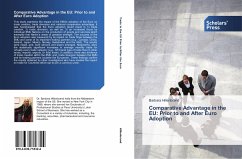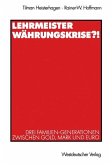This study examines the impact of the EMU's adoption of the Euro on trade creation, trade diversion and national comparative advantage. It was hypothesized that the Euro adoption would result in 1) trade creation, 2) trade diversion, as well as, 3) an increased focus by individual EMU Nations on the production of goods and services,which exemplify that Nation's areas of greatest strength. The success of the Euro adoption was measured by its impact on trade flows between the EMU and some of its important trading partners (e.g., Canada, China, Iceland, Japan, Mexico, Norway, Switzerland and the USA). The results were mixed--and, both winners and losers emerged. Noteworthy, were the statistically significant increases in average monthly trade for virtually every trade category (e.g., SITC)and type of trade flow (in other words, imports, exports, or total trade). In addition, there was evidence of trade creation within the EMU; and, trade diversion between the EMU and its trading partners (outside the Eurozone). These findings confirm the results obtained by other investigators who have studied the impact on trade for Countries which opt to join a currency union.
Bitte wählen Sie Ihr Anliegen aus.
Rechnungen
Retourenschein anfordern
Bestellstatus
Storno








